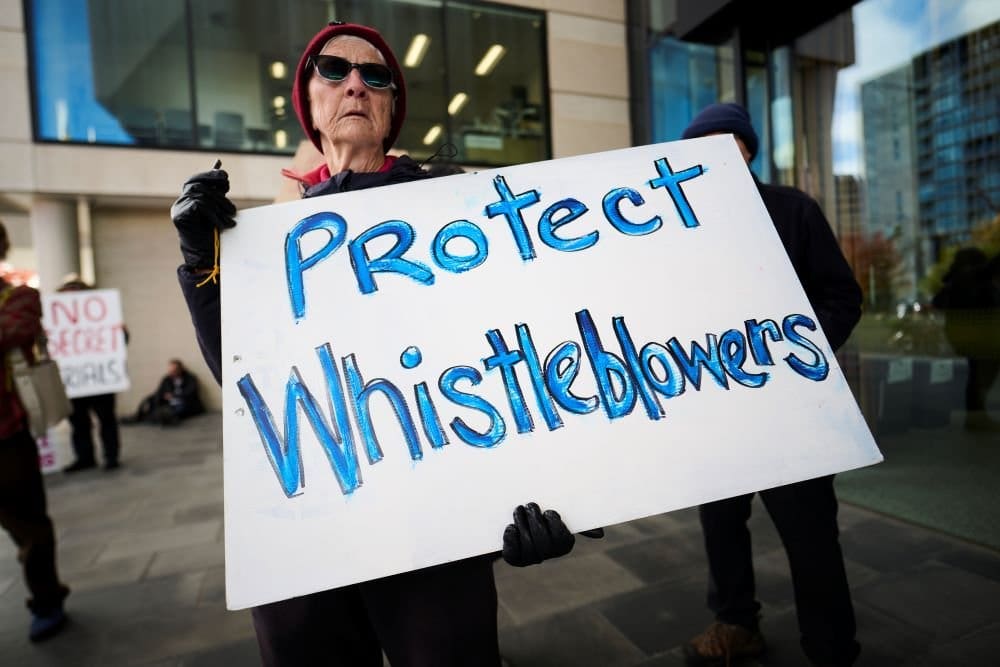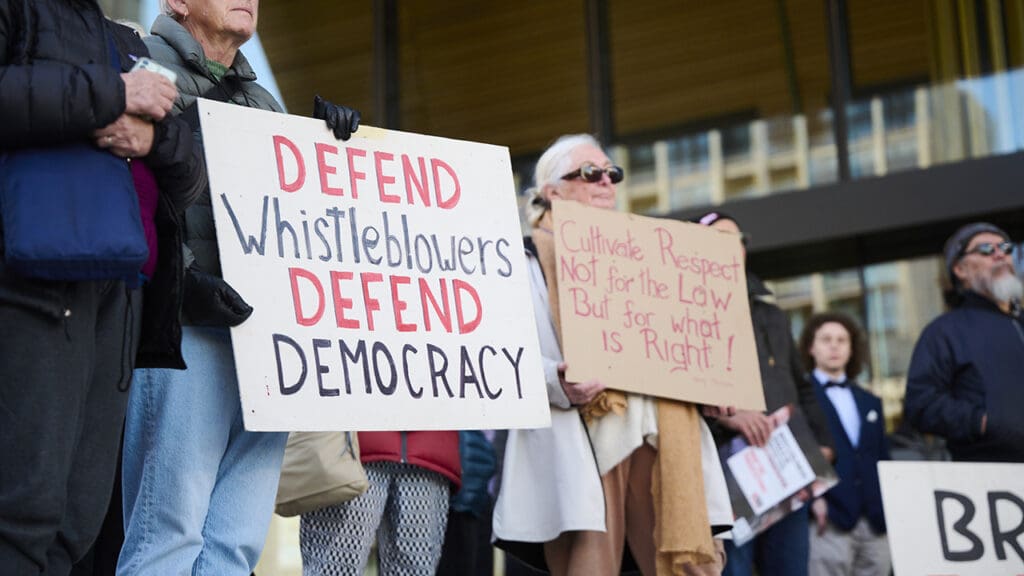Legal challenge against Tasmanian parole board’s new gag order against Susan Neill-Fraser
The Human Rights Law Centre has brought further legal proceedings on behalf of Tasmanian grandmother, Susan Neill-Fraser, to challenge a new restrictive parole condition which seeks to prevent her from speaking to any third parties, including the media, to claim her alleged innocence or wrongful conviction. This new parole condition replaces and expands an old parole condition which prevented her from speaking to the media.
The case, which is being heard in the Supreme Court of Tasmania, was adjourned today until 10 September. It argues that the new condition is unreasonable, improper and in breach of the constitutionally implied freedom of political communication.
Sarah Schwartz, Legal Director at the Human Rights Law Centre said:
“Freedom of speech and political communication are core democratic rights that belong to everyone – including and especially people who have been in prison, whose voices are essential to a just and democratic society.
“Parole should be a pathway to reintegration, not a way of continuing to impose punishment. When parole conditions silence people or limit their freedom of expression, they violate basic human rights and increase the risk of re-incarceration.
“Instead of stopping people from speaking out after being in prison, parole should be focused on ensuring people are supported as they re-enter the community.
Background
Susan Neill-Fraser served 13 years in prison and has been on parole since 2022.
In December 2024, the Tasmanian Parole Board placed a condition on Susan’s parole which prohibited her from communicating “directly or indirectly with any media outlet to claim [her] alleged innocence and/or wrongful conviction”.
In May 2025, this condition was replaced with a condition which prohibits her from communicating “directly or indirectly – including through third parties, written statements, electronic communications, social media platforms, television, radio, podcasts, streaming services, online video-sharing platforms, or any other public or broadcast media – to assert claims regarding your alleged innocence, wrongful conviction, or dispute the legitimacy of your conviction or sentencing”.
Media Enquiries
Chandi Bates
Media and Communications Manager

Albanese Government’s progress on whistleblower reform welcomed
The Albanese Government’s announcement on the next phase of public sector whistleblowing reform is a positive step forward for protecting and supporting whistleblowers.
Read more
Statement on the neo-Nazi violence and racism on 31 August
The Human Rights Law Centre strongly condemns the neo-Nazi violence towards First Nations people and the racial vilification of migrant and refugee communities on 31 August.
Read more
Whistleblower Richard Boyle sentenced, ending years of unjust prosecution
Whistleblower Richard Boyle’s sentencing is another dark day for democracy, and shows that the Albanese Government must urgently act on whistleblowing reform.
Read more



